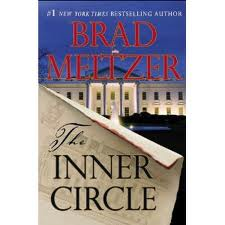 If you could only see one color, which one would you choose? Blue, so you could see the sky? Green, so you could see the fields? Purple, so you could see the bloom of a delicate orchid? Red, so you could see a person blush at the sound of your voice? Well, that is the world you would be born into if you lived in Jasper Fforde’s latest novel, Shades of Grey, only with one big difference: you wouldn’t get to choose what color you can see. Nope, that would all depend on your parents.
If you could only see one color, which one would you choose? Blue, so you could see the sky? Green, so you could see the fields? Purple, so you could see the bloom of a delicate orchid? Red, so you could see a person blush at the sound of your voice? Well, that is the world you would be born into if you lived in Jasper Fforde’s latest novel, Shades of Grey, only with one big difference: you wouldn’t get to choose what color you can see. Nope, that would all depend on your parents.
In Shades of Grey, Fforde creates a rather bright & colorful dystopian society where spoons are sold on a black market, doctors use color swatches for healing, and genetics determine one’s color vision which in turn determines a citizen’s place in society. Citizens are expected to marry within their colors, be obedient to the colors higher in the Spectrum and never ever go out after dark. Eddie Russett can see, and thus is, Red, and has always been satisfied with his lower place in the Spectrum. However, soon he finds himself in love with Jane Grey, a rebellious Grey at the lowest point in the Spectrum, who causes him to question everything he sees and doesn’t see. This novel is completely different from Fforde’s quirky meta-literary universes in his Thursday Next and Nursery Crime series, but it still contains his same nonsensical and snarky humor while addressing bigger issues of individualism, government/corporate power, and spoon shortages.
On a tangent: I experienced Shades of Grey in the audiobook format (although I may reread it in the text format–I wonder if there was any visual wordplay that I missed) and I tend to listen to listen to audiobooks while I wash the dishes, so I created a very, very complex formula to determine how much I enjoy listening to a particular book:
[(# of times I wash dishes) + 2(# of times I wash dishes despite it being my husband’s turn) – (# of times I listen to a Shakira playlist instead of audiobook)] / (# of weeks I listen to an audiobook) = x
if x < 1 then I probably never finished the book.
if x = 1 then the book was solidly good.
if x >1 then I enjoyed the book so much that I changed my dish-washing habits just to listen to it more often.
The audiobook for Shades of Grey by Jasper Fforde was about a 2.25, thus I REALLY ENJOYED this book!
 A Spider on the Stairs is a “contemporary reimagining of the classic English mystery.” It is refreshingly old-fashioned in its absence of gore and forensic razzle-dazzle.
A Spider on the Stairs is a “contemporary reimagining of the classic English mystery.” It is refreshingly old-fashioned in its absence of gore and forensic razzle-dazzle.








